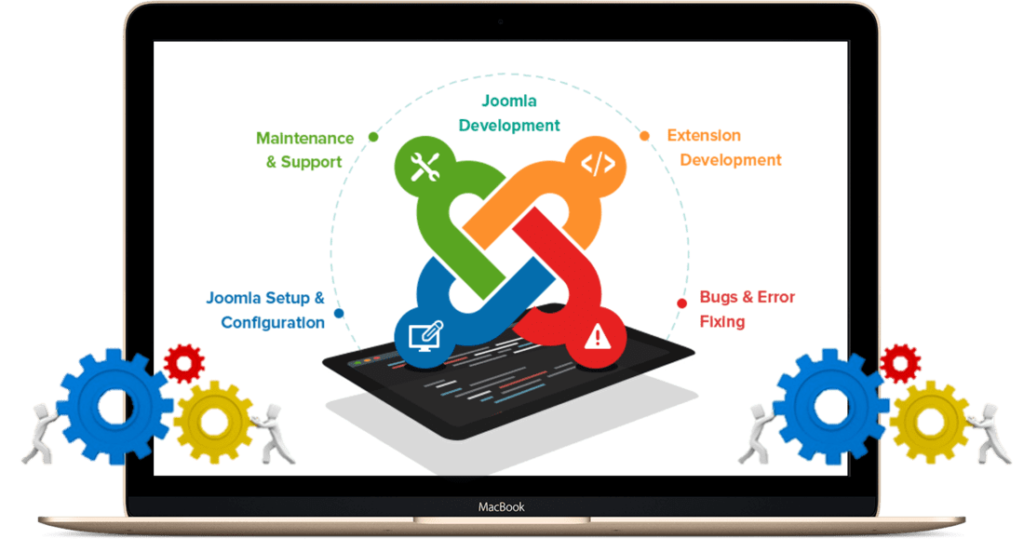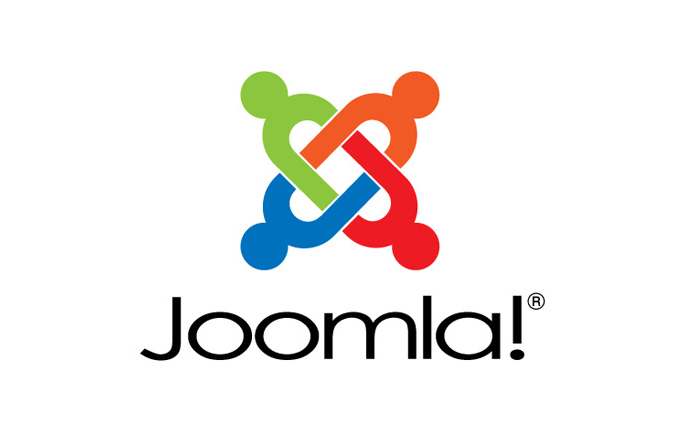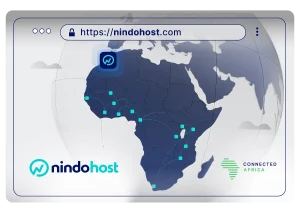What is a Joomla site?
A Joomla site is a website created and managed using the Joomla open-source CMS. It enables the creation of dynamic, interactive sites without the need for programming skills. Joomla uses modular architecture and a database to organize content, and offers a vast library of extensions to extend functionality. It's a user-friendly and flexible solution, used for various types of websites around the world. It allows users to create articles, categories, tags, menus and much more, with an intuitive user interface.
Joomla CMS: easy to use and develop
One of the advantages of Joomla lies in its user-friendly interface, which makes content management accessible to everyone, even without in-depth technical knowledge. Users can create and edit content using a WYSIWYG (What You See Is What You Get) editor, similar to a word processor, which simplifies content creation and formatting. For developers, Joomla offers an organized, well-documented code structure, making it easy to create custom templates, plugins and components to extend the CMS' functionality.
Joomla CMS architecture: how is it optimal?
Joomla is based on an MVC architecture that separates the model (data management), the view (display) and the controller (application logic). This approach creates modular code that's easy to maintain and extend. Joomla's architecture also favors code reuse, enabling developers to create compatible extensions.

Why choose the Joomla CMS?
We now know that Joomla is an open-source CMS renowned for its power, versatility and particularly appreciated for its flexibility and advanced features. Whether you're an individual, a small business or a government organization, Joomla offers a powerful platform for creating and managing professional websites. Discover the key features that make Joomla the right choice for your projects:
Advanced user management
Joomla lets you create user groups with specific access levels, manage publication rights and define administrative roles. This feature is ideal for sites with several contributors or users.
Integrated multilingualism
Joomla offers an integrated multilingual management system, making it an ideal solution for international sites and multilingual communities. You can easily create and manage versions of content in different languages.
Hierarchical content management
With Joomla, you can organize your content hierarchically by creating categories, sub-categories and articles. This makes it easier to navigate your site and structure your content.
Huge library of extensions
Joomla offers a multitude of extensions, such as modules, plugins and components, which enable you to easily add extra functionality to your site. You'll find extensions for forms, image galleries, online stores and more.
SEO-friendly
Joomla offers integrated features to improve your site's natural search engine optimization. You can customize meta tags, URLs and use SEO techniques to increase your site's visibility in search engines.
Customize design with templates
Joomla uses templates that make it easy to customize the look and feel of your site. You can choose from a variety of free and paid templates, or create your own customized design.
Active community and support
Joomla benefits from a large and active worldwide community that provides technical support, discussion forums and useful resources to get help and advice from the Joomla community.
Enhanced security with regular updates
Joomla attaches great importance to the security of its users. It offers regular security updates to protect your site against potential threats. By keeping your installation up to date, you guarantee the security of your Joomla site.
With these features, and many more, Joomla offers a pleasant user experience, efficient content management, flexible customization and enhanced security, making it a solid choice for creating and managing a successful web site.
Joomla hosting: what features are needed for optimum performance?

For high-performance Joomla hosting, some technical features are essential to guarantee a smooth and efficient experience. First of all, PHP support is essential, as Joomla is developed in PHP and requires a compatible version to function properly. A version of PHP 7.x or higher is recommended to benefit from performance and security enhancements. In addition, relational database support is required, notably MySQL or MariaDB.
A web hosting solution for Joomla should also offer full access to file and database management features via a control panel, as available on any cPanel hosting or Plesk hosting. This allows administrators to easily manage Joomla site files, folders, backups and databases.
For optimal performance, web hosting should also offer caching technology. Caching allows you to temporarily store site resources such as images and scripts, speeding up page loading and reducing the load on the server.
Security is crucial, and web hosting should include robust security measures such as firewalls, security rules to block malicious attacks, and regular server and software updates to correct vulnerabilities.
Server availability and performance are also important for reliable Joomla web hosting. Servers need to be powerful and well configured to handle traffic and requests efficiently, ensuring high site availability.
Finally, competent and responsive technical support is extremely important. Technical problems can arise, and it's important to have a support team available to resolve issues quickly and efficiently.
Joomla security: how well protected is my site?

Security is a key concern when it comes to managing a website, and Joomla takes this issue very seriously. As a popular open-source CMS, Joomla benefits from a solid approach to security, and several technical aspects attest to the platform's enhanced security.
Regular updates
The Joomla development team regularly releases security updates to correct identified vulnerabilities and security holes. These updates are essential to keep your site up to date with the latest security fixes.
Protection against common attacks
Joomla includes built-in security measures to protect your site against common attacks, such as SQL injection, brute-force attacks and cross-site scripting (XSS).
Advanced access control
Joomla offers an advanced user management system with specific levels of access. You can define administrative roles, manage publishing rights and control who has access to which parts of the site.
Protection against known security vulnerabilities
The Joomla community actively monitors vulnerabilities and provides patches quickly when security flaws are discovered. The community's responsiveness is a major asset in guaranteeing a secure environment.
Safety extensions
You can further strengthen the security of your Joomla site by using specific extensions dedicated to security, such as application firewalls, vulnerability scanners and intrusion detection tools.
Data encryption
Joomla uses encryption methods to protect sensitive information, such as user passwords, to ensure that they are not compromised in the event of data theft.
Safety audits
Joomla carries out regular security audits to assess the robustness of the platform and identify any flaws or vulnerabilities.
Protection against spam and DDoS attacks
Joomla offers built-in features to combat spam and Distributed Denial of Service (DDoS) attacks, helping to maintain your site's availability and security.
It's important to note that the security of a website depends not only on the platform used, but also on the good security practices you follow as an administrator. Make sure you regularly update your Joomla installation, use strong passwords, follow security recommendations, and keep a close eye on suspicious activity on your site. By taking a proactive approach to security and using the right tools, you can further strengthen the security of your Joomla site and provide a secure experience for your users.
Joomla website, for whom?
Joomla is a versatile CMS that caters to a wide range of users, from individuals to large corporations, government organizations and associations. Its flexibility, user-friendliness and advanced functionalities make it an attractive platform for different types of web projects. Here's a closer look at the diversity of users for whom Joomla is suited:
Individuals and bloggers
Individuals and bloggers alike appreciate Joomla for its ease of use and user-friendliness. Whether you want to create a personal blog, a portfolio site or a personal page, Joomla makes it easy to publish content without the need for advanced technical knowledge.
Small and medium-sized companies
Joomla is a popular option for small and medium-sized businesses wishing to create a professional, functional website. It offers content management and customization features that enable you to effectively represent your company online and communicate with customers.
Governmental organizations and institutions
Many government institutions and public organizations use Joomla for their web sites. Its advanced user management, multilingual features, enhanced security and modular architecture make it a solid, recommended choice for large-scale government sites.
Associations and online communities
Joomla is often used to create websites for associations and online communities. Its hierarchical content management system enables efficient organization of content and facilitates member engagement.
E-commerce companies
Joomla offers e-commerce extensions that make it easy to create online stores. E-commerce businesses appreciate Joomla's integrated product, order and payment management features.
Educational websites and institutions
Joomla is also used in the education sector to create websites for schools, universities and other educational institutions. Its multilingual support is particularly useful for international institutions.
Artists and creators
Artists and creatives use Joomla to create visually appealing websites to showcase their work, whether photographs, paintings, videos or other art forms.
Multinational companies
Joomla is also suitable for large multinational companies that need to manage multiple websites in different languages and regions. Its multilingual management system and flexibility make it an ideal choice for this type of company.
Because of its diversity and versatility, Joomla is widely used in different fields and meets a multitude of needs. Whatever your web project, Joomla offers a solid foundation for creating a professional, dynamic and user-friendly site, and remains an option to consider for your web projects.

Joomla website and natural referencing: how to optimize your SEO?
Search engine optimization (SEO) on Joomla is essential to improve your site's visibility in search results. Joomla lets you customize the meta tags of each page with relevant titles and descriptions containing targeted keywords. Joomla also allows you to organize your content hierarchically using categories and sub-categories, and create relevant internal links between pages. You can also use specific SEO extensions to generate XML sitemaps and manage canonical URLs, not forgetting to optimize your site's loading speed by compressing images, using caching and optimizing JavaScript and CSS scripts.
Joomla website optimization in Morocco: how to boost your site's performance?
Performance optimization is crucial to ensuring a responsive, fast and efficient Joomla site. In Morocco, as in other regions, several technical aspects can be taken into account to improve the performance of your Joomla site. Here are some specific techniques and considerations to boost your site's performance:
Adapted accommodation
Choose quality web hosting, such as that offered by Nindohost, ideally located in Morocco, between Africa and Europe, and with high-performance servers in the region. Good hosting is essential to guarantee fast response times and a smooth user experience.
Image optimization
Images can significantly affect site performance. Compress images without loss of quality to reduce their size, and use suitable image formats, such as JPEG or WebP, for faster loading times.
Caching
Use caching extensions to store your site's static resources, such as images, CSS and JavaScript files, in cache memory. This reduces server requests and speeds up page loading.
File minimization
Reduce the size of CSS, JavaScript and HTML files by minifying them, i.e. removing unnecessary spaces, comments and superfluous characters. This reduces the size of files downloaded by visitors.
Database optimization
Your database can accumulate unnecessary data over time. Regularly remove obsolete data and optimize your database to improve query response times.
Script management
Make sure that JavaScript scripts loaded on your site are well optimized and do not slow down page loading. Place non-essential scripts at the bottom of the page to avoid blocking the loading of the main content.
Redirect reduction
Too many redirects can slow down page loading. Check and eliminate unnecessary redirects to improve performance.
Using CDN
A content delivery network (CDN) can be beneficial for improving site loading speed. A CDN enables static content to be distributed to servers located geographically close to users, thus reducing latency times.
Performance test
Run regular performance tests using tools such as GTmetrix or Google PageSpeed Insights to identify performance problems and opportunities for improvement.
Regular updates
Make sure you keep your Joomla installation, extensions and theme up to date. Updates often bring performance improvements, bug fixes and optimizations.
By following these specific optimization techniques, you can significantly improve the performance of your Joomla site in Morocco and deliver a smooth, fast user experience. Better performance also contributes positively to your site's SEO, helping you to attract more visitors and keep them coming back. Take the time to regularly audit your site's performance and make the necessary adjustments to keep your Joomla site at its best.
How do I migrate a Joomla site?
Joomla hosting migration is a technical procedure that requires careful planning to ensure the successful transfer of your website from one server to another. On the one hand, you can turn to the experts at your new hosting provider, who will take care of transferring your site. This is the case with Nindohost, who will take care of the migration of your Joomla site free of charge, with no loss of data and no interruption of service. On the other hand, if you're an expert in the field, you can start by making a full backup of all Joomla site files and database, to prevent any loss of data in the event of a problem. Once the backup is complete, the Joomla site should be installed on the new server using a standard installation procedure. Then, the backed-up files and database must be transferred to the new server in such a way as to preserve the site's integrity.

In this article, we explore in detail the Joomla CMS, a powerful and flexible tool for creating professional websites. We've highlighted its advantages, including its versatility in meeting the needs of a variety of users, from individuals to large corporations and government organizations. Joomla stands out for its advanced user management, integrated multilingual system and hierarchical content management.
Focusing on the technical side, we highlighted how Joomla offers a multitude of features to optimize your site. We looked at how Joomla facilitates search engine optimization (SEO) thanks to customizable meta tags, a hierarchical structure for content, and dedicated SEO extensions. We also explored the technical aspects of security, focusing on regular updates, security extensions and advanced user management to protect your Joomla site from potential threats.
When it comes to hosting, we've stressed the importance of an environment compatible with Joomla's technical requirements, such as support for PHP and MySQL/MariaDB, caching technology, and robust security measures. These elements are crucial to ensuring optimal performance, high availability and efficient content management on your Joomla site.
Finally, we discussed the migration of a Joomla site to new hosting. We emphasized the importance of planning and making a complete backup of files and database before transferring the site to the new server.
Overall, Joomla is the CMS of choice for many web projects, offering a combination of solid technical aspects and advanced functionality to meet the needs of diverse users. With Joomla, you can create a professional, secure, well-referenced and optimized website, while benefiting from a user-friendly management experience. Whether you're just starting out in the world of web development or you're a seasoned expert, Joomla remains a must-have option for your next online project.



